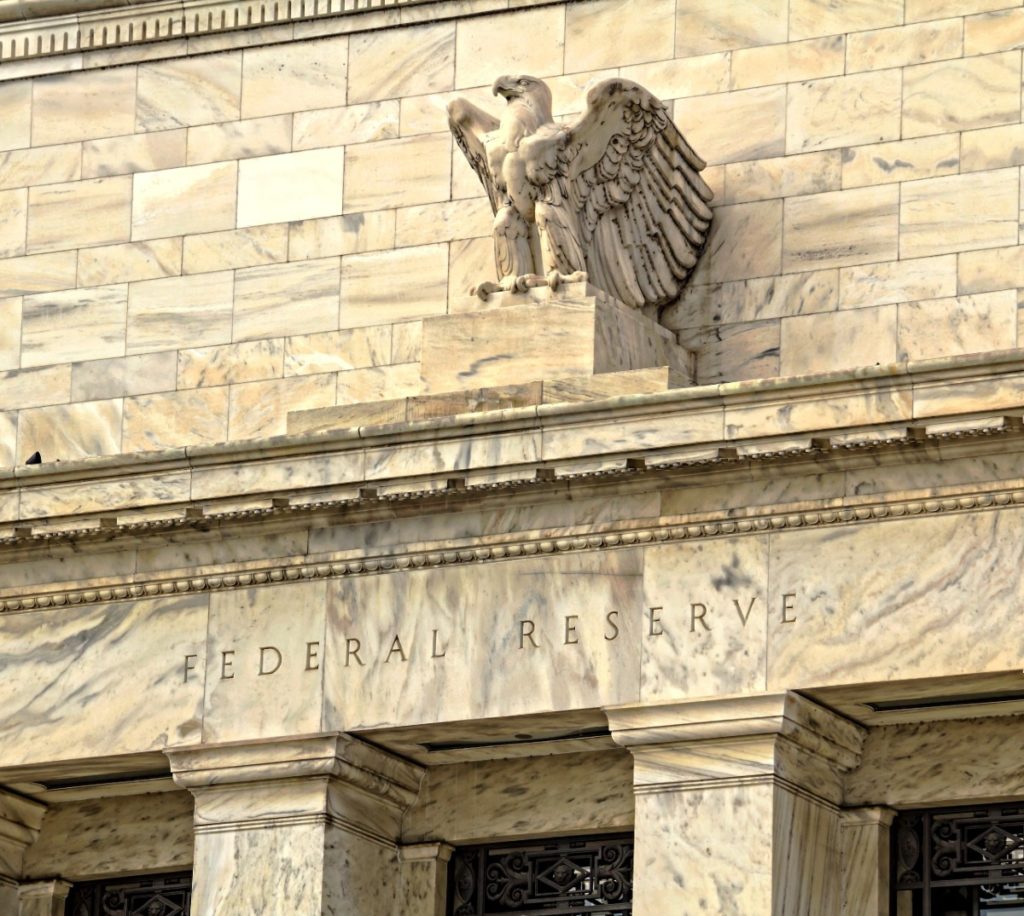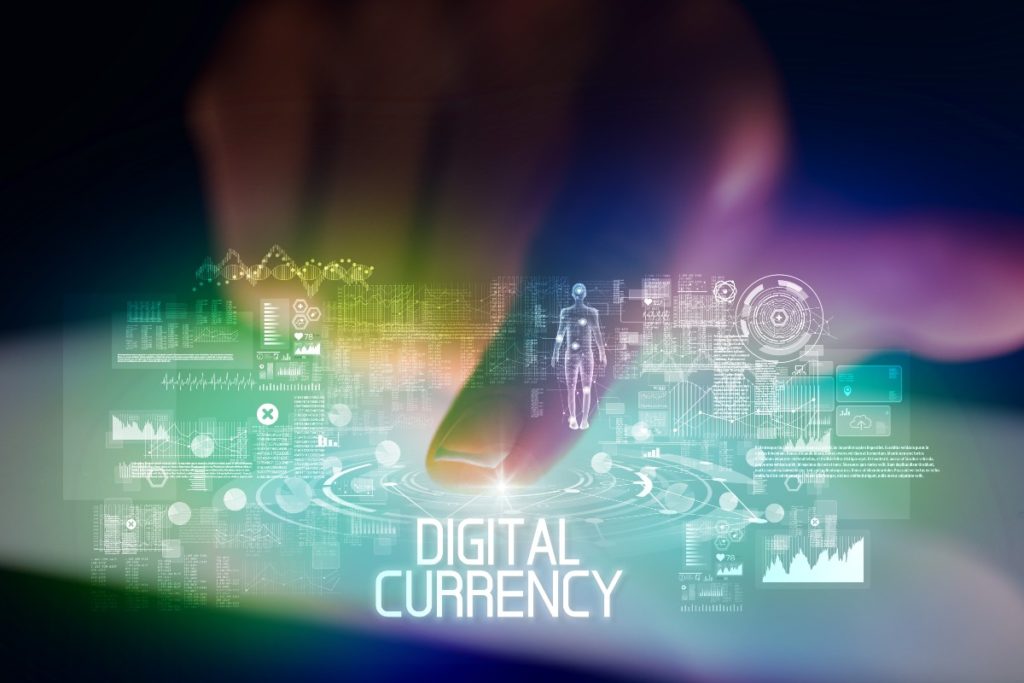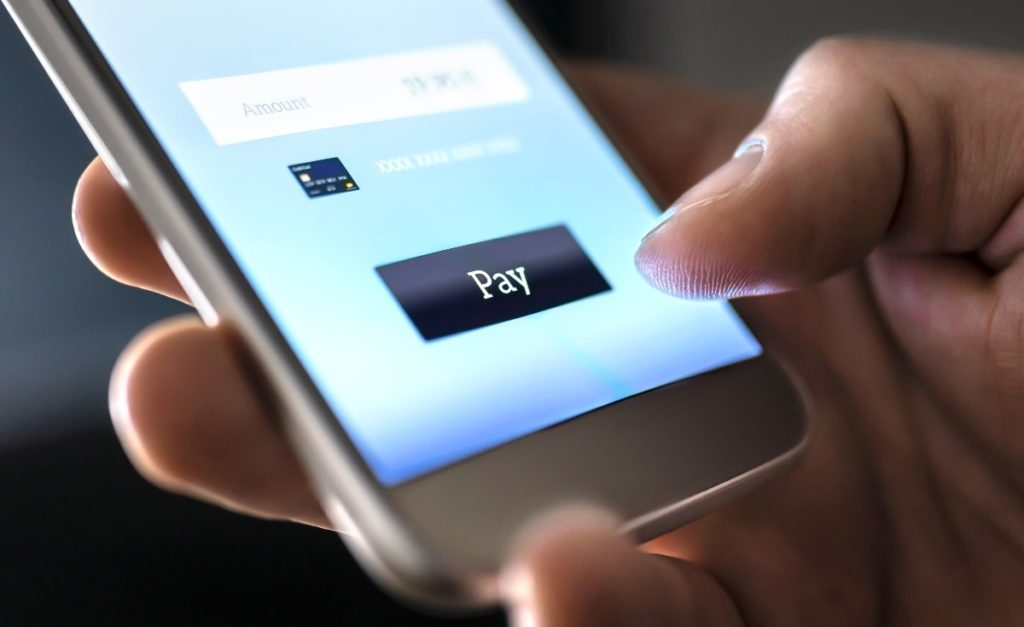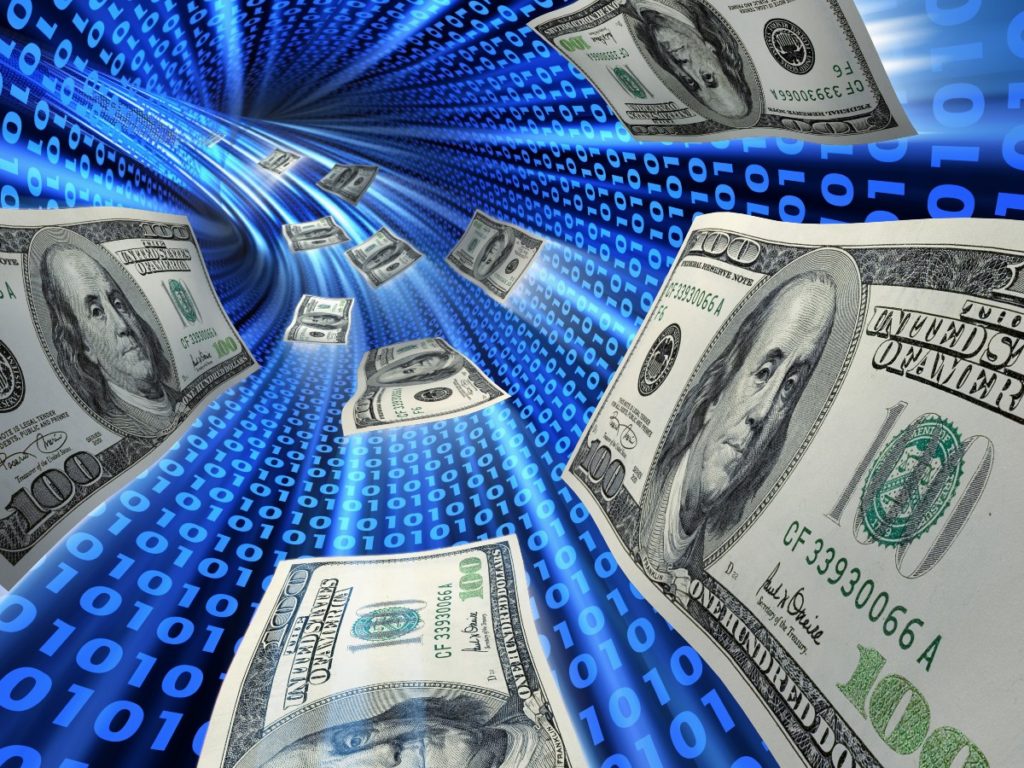Digital currency from the Federal Reserve Bank it’s a matter of when not if. With the world relying more heavily on digital financial transfers from apps like Venmo and PayPal or outright cryptocurrencies like Bitcoin, it’s time for the U.S. central bank to enter the fray as well. But how will it account for its digital currency? Will administering digital transactions give it too much power?
Fedcoin, Digital Currency, Fiat Dollars, and More
 When you consider the rapid transition to digital currency, you might find yourself asking, “Is money even real anymore?” The answer to that is more complicated than most think.
When you consider the rapid transition to digital currency, you might find yourself asking, “Is money even real anymore?” The answer to that is more complicated than most think.
View cryptocurrencies and digital dollars in the light of what they actually could be: fiat dollars. When a government creates an unbacked currency, it is a fiat dollar. If the Fed decides to make its own “Fedcoin” or digital dollars, this will simply be another example of fiat dollars.
Then How Does the Accounting Work?
If cryptocurrencies and federal digital dollars are simply unbacked digital currency, how are they accounted for? This depends on whether they are held by a decentralized network or a centralized authority.
In the case of cryptocurrencies like Bitcoin, they are constructed from a technology called Blockchain. This is a record-keeping technology that serves as excellent accounting for digital transactions.
Blockchain Basics
In Blockchain, every transaction made with the cryptocurrency (a payment, a deposit, etc.) is stored in an information document called a  “block.” The block has a unique transaction ID (called a hash) plus the transaction ID of the previous transaction.
“block.” The block has a unique transaction ID (called a hash) plus the transaction ID of the previous transaction.
To alter the records and falsify payment information, a hacker would have to hack the entire chain of blocks, as each is uniquely linked to the previous block.
Hacking the entire chain is nearly impossible because it is stored on a decentralized network. This network is made up of thousands of private computers around the world.
Private citizens and professional organizations opt into these networks by solving complicated math problems and showing they can be trusted to help verify transactions in the chain. They are called “miners” and are compensated in fractions of Bitcoin.
How Much Do You Trust the Government?
This question is at the heart of the development of digital currency.
The benefit of cryptocurrencies like Bitcoin is that they are decentralized. Their integrity comes from the many verifications that sanction each transaction. Trust is constantly and independently built in the blockchain system. No single entity is in charge and it would require infiltration of more than half of the verifying computers to falsify something in the system.
Digital currency accounting from a centralized authority like the Federal government will look nothing like this—for better or for worse.
Saving Money with Digital Currency
The participating miners in the blockchain system put an intense amount of computing—and thus electricity—into each verification process. Though it is a digital system, it does have a high cost in natural resources.
Since the Federal Reserve will not need to verify your trust in this manner, it will save money in managing its digital dollars. Thus, a central bank digital dollar is inherently less expensive. Like any traditional bank, it will simply confirm each transaction on its own authority.
Which brings us back to the question—how much do you trust the government with your money?
Big Brother Is Watching
 Perhaps the biggest detractor for a central bank digital dollar is that every single transaction is tracked. Whereas now you make a purchase with cash with relative anonymity, with digital currency the nature of the system would store information about each time you buy something, including when, where and what. This recent Apple ad brings this possibility to light.
Perhaps the biggest detractor for a central bank digital dollar is that every single transaction is tracked. Whereas now you make a purchase with cash with relative anonymity, with digital currency the nature of the system would store information about each time you buy something, including when, where and what. This recent Apple ad brings this possibility to light.
Some feel this would give too much power to the Fed, theoretically restricting purchases or use purchase history unjustly against a citizen. As digital currency approach, there is no doubt this potential abuse of power will have to be addressed in legislation.
Peer-to-Peer Exchange and Quick Payments
While stirring at the surface, this overarching authority is precisely what will benefit U.S. citizens if the Fed does opt into digital dollars. Since it can simply authorize every transaction like any other bank, money can move faster and at less energy expenditure compared to other digital currency.
 The Fed could easily design a digital system for citizens to simply exchange “cash” without the need to use a private money app. Citizens could also store their money in this system like a wallet full of cash, which would be a serious threat to some banking and payment apps.
The Fed could easily design a digital system for citizens to simply exchange “cash” without the need to use a private money app. Citizens could also store their money in this system like a wallet full of cash, which would be a serious threat to some banking and payment apps.
Federal payments like tax returns or stimulus checks would be much simpler to administer, as it would not require the intermediary of a private bank or updating mailing addresses. When it comes to money, fewer barriers between citizens and the government is an attractive option, and most likely the reason digital currency will come sooner than later, despite concerns about authority.
Still have questions about cryptocurrencies and digital currency? Reach out to an expert at Stableford Capital to find out what a federal digital currency would mean to you and how investing in cryptos now could be a smart move for your portfolio. Contact Stableford by calling 480.493.2300 or schedule a complimentary 15-minute consultation online.
